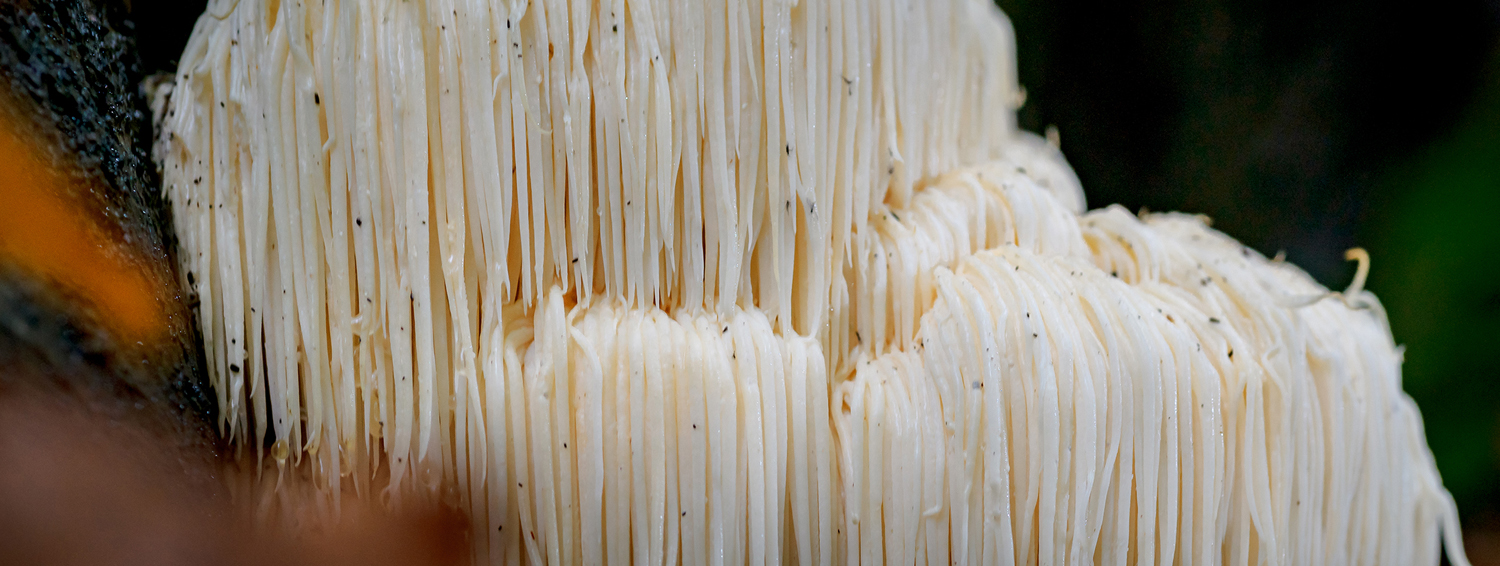Lion’s Mane (Hericium erinaceus) mushrooms are very nutritious and are rich in vitamins such as thiamine, riboflavin, and niacin. It’s also a good source of essential minerals such as manganese, zinc, and potassium. Research shows that lion’s mane has many health-promoting ingredients that come with several benefits. Research has found that lion’s mane may protect against dementia*, reduce mild symptoms of anxiety and depression* and help repair nerve damage*. It also has strong anti-inflammatory, antioxidant and immune-boosting abilities and been shown to lower the risk of heart disease, cancer, ulcers and diabetes in animals*.
Learn more about Lion’s Mane Mushrooms

Frequently Asked Questions

Are Lion's Mane mushrooms psychoactive?
No, mushrooms that can cause a high contain compounds such as muscinol or psilocybin, a naturally occurring psychedelic that can alter your state of mind. As lion's mane does not contain psilocybin or other psychoactive compounds, there is no risk of you getting high from consuming the fungus.

Are there negative side effects of Lion's Mane mushrooms?
When eaten fresh or in dried form, Lion's Mane mushrooms are generally well tolerated. Reported side effects from some users include abdominal discomfort, nausea, and skin rash. It may also interact with blood-clotting medications (such as warfarin) and diabetes treatments. Talk with your doctor before use if you are pregnant, nursing or have a medical condition and are taking any prescription medications.

Is it safe to take Lion's Mane supplements daily?
It is considered safe and highly beneficial to take lion's mane mushrooms every day. Long-term benefits of lion's mane—such as their ability to prevent diabetes and alleviate symptoms of Parkinson's disease—become more pronounced the longer you use this mushroom.*



